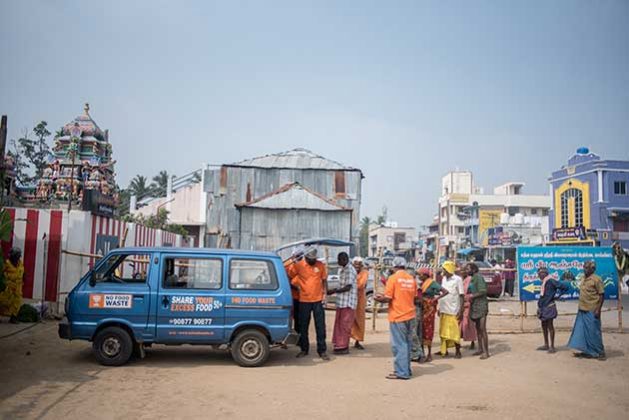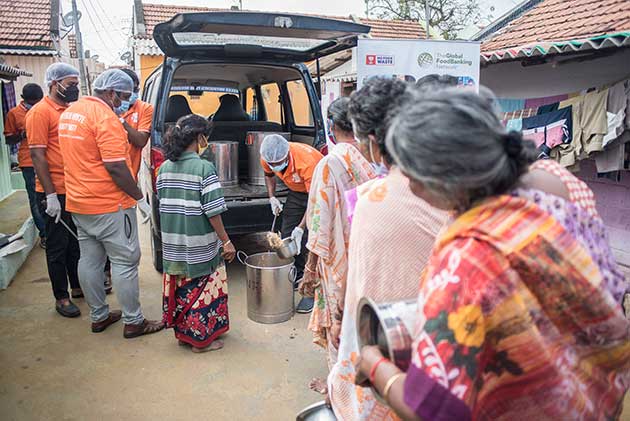G20: Cutting Food Loss and Waste is an Opportunity to Improve Food Security

CHICAGO, USA, Aug 08 (IPS) - The writer is President & CEO, The Global Food Banking NetworkWith the ongoing global food crisis—triggered by the COVID pandemic, disasters, supply chain disruptions, and conflict in Ukraine—food security should be at the top of the G20 agenda when countries gather in India in September 2023.
Food security and national security are closely intertwined. Throughout history, countries that have suffered from extreme hunger and malnutrition have been vulnerable to civil unrest, along with diminished economic productivity and exacerbated inequity.
Having a robust and resilient food system is critical for G20 countries, which together represent around 85 percent of global gross domestic product and are home to two-thirds of the world’s population. In addition, G20 countries produce as much as 80 percent of the world’s cereals and account for a similar proportion of global agricultural exports.
Indian Prime Minister Narendra Modi has recognized this imperative, recently saying in a message to G20 Agricultural Ministers: “I urge you to deliberate on how to undertake collective action to achieve global food security.”
Yet, with more than 735 million people facing food insecurity in 2022, about half of whom are in G20 countries, the food system clearly needs repair.
While a multi-dimensional approach is essential, there is a solution that brings immediate benefit to people, while reducing food waste and helping address climate change. That solution is food banking.
Food banks collect surplus food in large volumes, often donated or purchased from food manufacturers, retailers or farmers, and get it to those who need it most. Working in concert with other community-led organizations to reduce hunger and food insecurity, food banks help address the paradox at the heart of the global food system: the unconscionable amount of food that is lost or wasted that could – and should – instead be used to feed people.

Food banks are already present in every G20 market, providing nutritious meals to people who need them most. They often complement the work of governments to get food to people who are underfed or undernourished. And they can reach those who are often left out of other forms of social protection. Food bankers are embedded in their communities and can respond quickly when disasters strike.
Last year, members of The Global FoodBanking Network in nearly 50 countries helped feed 32 million people, distributing more than 650 million kilograms of food and groceries and mitigating 1.5 billion kilograms of CO2e through avoided food loss and waste. Many of these countries faced civil unrest and disasters caused by climate change and conflict.
India is already setting a strong example in mobilizing food banks as part of its efforts to address food waste. Having implemented Surplus Food Regulations in 2019 to ensure unused food could be donated, India saw a 250 percent increase in the volume of food distributed through food banks last year compared to pre-pandemic levels.
The food banks No Food Waste, India FoodBanking Network and Feeding India provided 13.5 million kilograms of food to 6.4 million people in 2022. These food banks provide nutrition to school children, migrant workers and other vulnerable populations. With supportive government policies and financing, these efforts have the potential to expand rapidly in the coming years.
A growing number of G20 countries, such as Brazil and Indonesia, are also adopting food banks to strengthen their food security and reduce hunger. Last year, Brazil’s national network of nearly 100 food banks served 2.5 million people in the country. And food banks in Indonesia provided food to about 1.2 million people in 2022, an increase of nearly 40 percent compared to 2021.
By working with food producers, retailers and farmers, food banks bridge public and private sectors, providing a vital service that complements social welfare programs and helps minimize food waste and the associated emissions, contributing to multiple human development goals.
When G20 leaders come to the table to discuss the urgency of food security, they will look for solutions that are already available and have proven track records. India has already made it clear that food security is a priority for its G20 presidency. The government now has the opportunity to leverage its experiences and insights to build effective collaboration among countries on this issue.
By developing comprehensive food security strategies, G20 countries can make a sound investment to create a stronger future.
IPS UN Bureau
Follow @IPSNewsUNBureau
Follow IPS News UN Bureau on Instagram
© Inter Press Service (2023) — All Rights ReservedOriginal source: Inter Press Service
 Global Issues
Global Issues